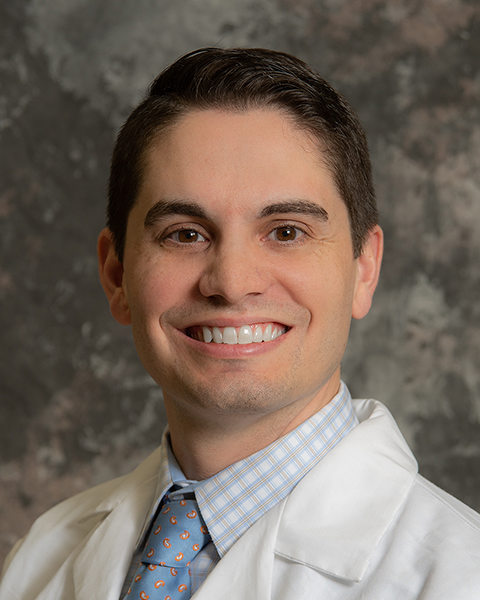Penn Highlands Physician Offers Faster Recovery for Carpal Tunnel Surgery Now in Clarion
If you are one of the more than 13 million Americans who suffers from carpal tunnel syndrome, there is a new procedure available to residents of the Clarion area to relieve the pressure on the median nerve. Christopher Varacallo, DO, CAQSM, FAAFP, a board-certified orthopedic and sports medicine physician at Penn Highlands Healthcare, performs micro-invasive carpal tunnel release (CTR) with ultrasound guidance on an outpatient basis in minutes.
Carpal tunnel syndrome is caused by a compressed nerve that runs from the forearm to the hand through a passage called the carpal tunnel. Symptoms include, tingling or numbness in the fingers or hand, dropping objects due to hand weakness, shock-like feelings moving into the fingers and a tingling sensation that moves up the arm.
“While many people relate carpal tunnel syndrome to using a keyboard or other repetitive motions, it is actually caused by genetics and health conditions such as arthritis, diabetes, and obesity,” explained Dr. Varacallo. “People with small carpal tunnels and women are at higher risk.”
According to Dr. Varacallo, traditionally, patients considering carpal tunnel surgery would have to undergo multiple appointments, an uncomfortable diagnostic test and an invasive surgery that would take months to heal. But with carpal tunnel release using ultrasound guidance, he uses the SX-One MicroKnife®, a low-profile, safe and effective instrument that enables him to perform the procedure in a matter of minutes.
Patients realize many benefits from this innovative procedure. First, the release is performed under local anesthesia in a procedure room or office setting, rather than an operating room. It only requires a small incision which is typically closed without stitches. CTR reduces or eliminates the need for opioids. Restorative physical therapy is typically not required. Patients experience immediate motion in the hand promoting rapid recovery. Most patients return to normal activity in a few days, rather than a few months, and they only need Tylenol or ibuprofen to manage post-operative pain. Most patients typically return to work and the activities they love within three to six days.
“If you are experiencing symptoms of carpal tunnel syndrome that interfere with your normal activities or sleep, don’t suffer and most importantly don’t delay treatment,” said Dr. Varacallo. “Permanent nerve and muscle damage can occur without treatment, and today’s advanced procedures allow you to resume your normal activities pain-free more rapidly.”
In addition to treating carpal tunnel syndrome, Dr. Varacallo specializes in orthopedic care and surgery, concussion treatment, sports medicine, non-surgical orthopedic care and TenJet tendinitis treatment. He sees patients in the Penn Highlands Orthopedics and Sports Medicine Office in the Clarion Community Medical Building at 265 Holiday Inn Drive in Clarion. For more information, visit www.phhealthcare.org/carpal.


